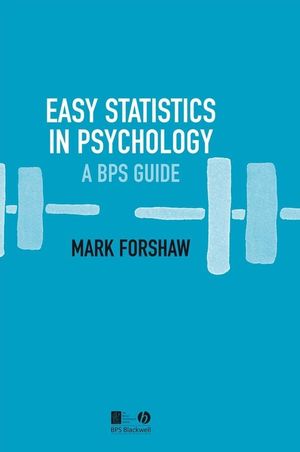|
Textbook
Easy Statistics in PsychologyWiley-Blackwell
 This product is not currently available for purchase from this website.
For customer care, special sales, or to find your rep, please visit our Contact Us page. |
|
Textbook
Easy Statistics in PsychologyWiley-Blackwell
 This product is not currently available for purchase from this website.
For customer care, special sales, or to find your rep, please visit our Contact Us page. |